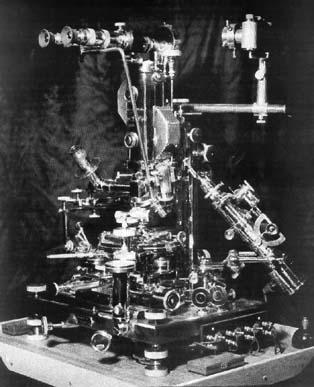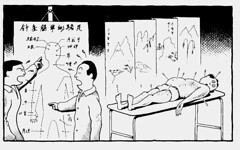Echinacea is still NOT working on colds
Yet another well prepared and controlled study is showing that the herbal remedy Echinacea doesn't help to prevent the common cold though it has been promoted as a proven treatment.
The study is published in New England Journal of Medicine, July 28:
An Evaluation of Echinacea angustifolia in Experimental Rhinovirus InfectionsOrac know that studies don't matter to those who believe. My guess is that they will persist in their belief using irrational arguments like "Echinacea works for me" or "I've been taking this for years and I am one of those people that Echinacea does work on".
(Ronald B. Turner, M.D., Rudolf Bauer, Ph.D., Karin Woelkart, Thomas C. Hulsey, D.Sc., and J. David Gangemi, Ph.D.)
ABSTRACT
Background Echinacea has been widely used as an herbal remedy for the common cold, but efficacy studies have produced conflicting results, and there are a variety of echinacea products on the market with different phytochemical compositions. We evaluated the effect of chemically defined extracts from Echinacea angustifolia roots on rhinovirus infection.
Methods Three preparations of echinacea, with distinct phytochemical profiles, were produced by extraction from E. angustifolia roots with supercritical carbon dioxide, 60 percent ethanol, or 20 percent ethanol. A total of 437 volunteers were randomly assigned to receive either prophylaxis (beginning seven days before the virus challenge) or treatment (beginning at the time of the challenge) either with one of these preparations or with placebo. The results for 399 volunteers who were challenged with rhinovirus type 39 and observed in a sequestered setting for five days were included in the data analysis.
Results There were no statistically significant effects of the three echinacea extracts on rates of infection or severity of symptoms. Similarly, there were no significant effects of treatment on the volume of nasal secretions, on polymorphonuclear leukocyte or interleukin-8 concentrations in nasal-lavage specimens, or on quantitative-virus titer.
Conclusions The results of this study indicate that extracts of E. angustifolia root, either alone or in combination, do not have clinically significant effects on infection with a rhinovirus or on the clinical illness that results from it.
Using the "I have seen it work" argument as the foundation of believing that something is working is a subjective impression. There's a great chance that one might be operating on superstition rather than on trustworthy knowledge.
If somebody is saying: "I'm a big believer in herbal medicine and it makes me feel good", then it's the placebo effect that make them feel good, - nothing else.
The fact that people have been using a remedy for centuries doesn't prove the effect of doing it.
"I started to feel like I was getting a cold ...... but my symptoms only lasted two days because of Echinacea"
"Symptoms would be much worse if not eating Echinacea..."
So how will anyone prove that?
Let's just face it - the reason for feeling better could be - not Echinacea, but the naturally fluctuation course of mostly colds that only last a few days.
The only way to prove this would be to set up a double-blinded test, where you will not know if you're having Echinacea or a placebo. Then follow them out for a couple weeks and see if it works, you will be able to tell which you are taking based on the results - if Echinacea is more than placebo.
Suggested readings: Vitamin C May Not Fight the Common Cold




 It was a nice cool ride to get there and as I finally arrived at the Saloon I tried to push the door open, but it was locked. No matter how much I tried I couldn't get inside and I even used my lady gunfighter. I looked through the windows to see if anyone was there yet and then the sheriff came by and told me that it was the wrong door.
It was a nice cool ride to get there and as I finally arrived at the Saloon I tried to push the door open, but it was locked. No matter how much I tried I couldn't get inside and I even used my lady gunfighter. I looked through the windows to see if anyone was there yet and then the sheriff came by and told me that it was the wrong door.









